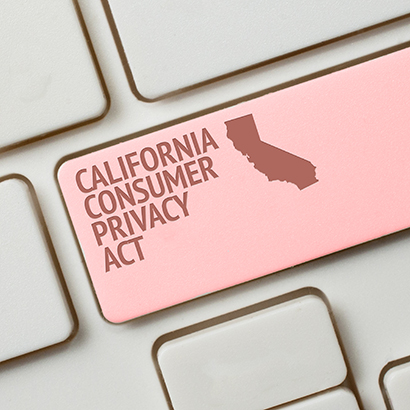
Series
California Privacy Law Center
Effective 1 January 2020, Californians have new rights regarding their personal information, including the right to say "no" to the sale of their personal information.
As written, some of the compliance requirements in the California Consumer Privacy Act of 2018 (CCPA) are unclear. The California Attorney General is tasked with adopting regulations, rules, and procedures that should help to clarify how to comply in the future. Until then, a business subject to the CCPA can take the time to understand its purpose and scope. Those businesses may wish to inventory the personal information that they collect, use, and disclose, which will prepare them to take specific compliance steps once the California Attorney General or legislature provide further guidance. Over the coming year, our California Privacy Law Center will feature insights, articles, and webinars to help you navigate the legal and business implications related to CCPA. Visit regularly for updates in relation to new regulatory guidance and the unfolding scope of California Privacy obligations.
Thought Leadership
On 2 April 2025, President Trump announced a series of “reciprocal” tariffs on US imports from all countries. The tariffs apply at different rates by country, starting at a baseline of 10% and reaching as high as 50%.
The Hon. Jim Chalmers MP, Federal Treasurer and the Hon. Clare O'Neil MP, Minister for Housing, Minister for Homelessness issued a joint media release on 16 February 2025 titled "Albanese Government clamping down on foreign purchase of established homes and land banking".
The nuclear energy industry continues to gain momentum and has a strong outlook for 2025 and beyond.
Starting on 30 June 2024, with the application of the first of two introduction phases of the Regulation on Markets in Crypto-assets across all member states of the European Union, the EU has introduced for the first time a harmonized regulatory framework as well as accompanying passporting rights for service providers of the crypto-asset market, affecting both traditional institutions of the financial sector and new players emerging in the crypto-ecosystem.

